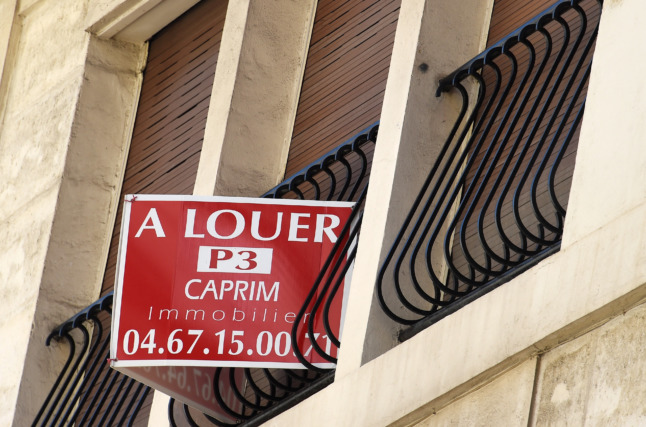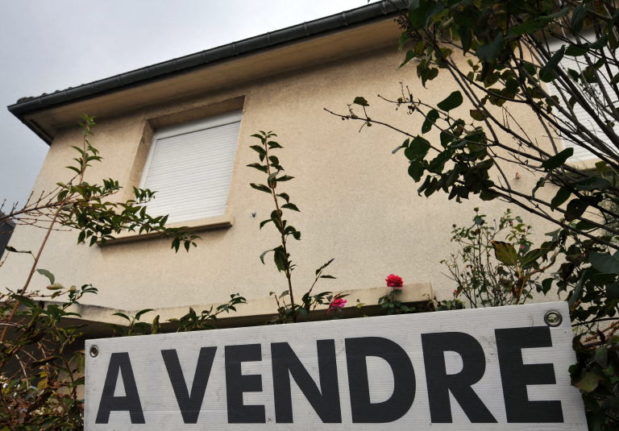Hunting for somewhere to live can be daunting in France, especially in cities where competition for properties can be fierce.
Decide what you’re looking for
If you are looking in a city or town it’s likely that you will be looking at apartments, as houses are a lot less common.
First of all, you need to decide whether you prefer a colocation (flat share) or a location (rental).
For either option, leboncoin is a good place to start looking for listings. If you’re looking to share there are dedicated sites like La carte des colocs and Appartager, otherwise you can try the direct listing on Pap.fr or SeLoger or letting agencies’ websites.
If you’re a student, you may be eligible for low-cost student housing with the CROUS. But if you go the private route, you will be faced with a range of different options.
Pièces in French property listing refer to all rooms, not just bedrooms, so a place with deux pièces has two rooms in total, not two bedrooms. For bedrooms, you’re looking out for chambres.
A studio has one main room which serves as the bedroom and living area, and usually the kitchen.
A T2 or F2 refers to a one-bedroom flat. So a T3 means two bedrooms, etc.
You will also have to decide between a meublé or non-meublé (furnished or unfurnished).
“Unfurnished” in France can mean the kitchen has only a sink, and no cupboards or appliances, so if you don’t fancy shelling out on an oven and a fridge, look for a place which specifies cuisine équipée (fitted kitchen).
Here are some other terms to look out for:
Lumineux – bright
Sans vis-à-vis – not overlooked
Douche à l’italienne – walk-in shower
Cuisine américaine – fitted or open-plan kitchen
Avec ascenseur – with a lift
Buanderie – laundry room
Mansardé – with a sloping ceiling
Chambres en enfilade – Adjoining bedrooms (you walk through one to reach the other)
Set a budget
What you can get for your money will vary dramatically depending on the town you choose to settle in, but there are a few things to look out for.
Many apartments will list a price followed by CC. This means charges comprises (bills included). However, make sure to ask what exactly is included, because usually this only encompasses water and building charges, leaving you to add the cost of electricity, heating and internet on top.

Don’t forget that letting agencies in France can charge administrative fees running up to several hundreds of euros when you sign a lease, so if you want to save money up-front it’s better to rent from a private landlord.
READ ALSO Nine things to expect when renting an apartment in France
In either case, you will have to provide a dépôt de garantie (deposit), sometimes referred to as a caution. For an unfurnished apartment, this is equivalent to one month’s rent, and for a furnished place it’s two months.
If you’re not already in France you many also have to supply a garant (guarantor) as it’s likely that landlords will not accept your non-French paperwork, especially if you do not already have a French bank account.
See if you can get help
Some listings will also say APL possible. This means you can apply for help towards your rent from the French state in the form of an aide personnalisée au logement (personalised housing allowance), often referred to as the CAF, which is the organism through which you apply for APL.
How much you receive will depend on the size of the flat, as well as your personal situation, so if you find a place you like, you can see how much you’re likely to be eligible for using the CAF’s online calculator.
You should not rely on the APL when setting your budget, however, as French bureaucracy means you could be waiting several months before receiving your first payment.
Prepare your dossier
Nearly everything you need to do upon moving to France will require a multitude of documents, not least moving into a new flat. In this instance, you will be asked to provide these documents in the form of a dossier.
In cities, it is usual for landlords or agents to ask to see your dossier before they even agree to let you view the property, so get your dossier ready before you start calling to try and set up viewings.
You can either print them out, or create an online dossier using the government’s new platform, DossierFacile.fr. Find out how it works HERE.
If you are working, it is common for agencies to require proof that you earn more than three times the monthly rent. If you’re a student, you will be asked to provide a guarantor.
Private landlords will often be less strict about minimum earnings and are more likely than agencies to accept a guarantor who doesn’t live in France.
If you are under 30 and don’t have a French-based guarantor, you can apply for the French state to step in and be your guarantor, using the Visale scheme. Check if you’re eligible HERE.
These are the documents you will usually be asked for:
- Pièce d’identité (ID card or passport, for you and your guarantor)
- Justificatif de domicile (proof of address)
- Trois derniers bulletins de salaire (last three pay slips, if you’re working, or from your guarantor if you’re a student)
- Dernier avis d’imposition (last tax notice – yours, or your guarantor’s if you have one)
You may also be asked to show your residency card, rent receipts from your last apartment, and your work contract or student card.
Organise visits
You can do as much online research as you like, but when it comes to finding a property, there is no better way than organising visits and seeing as many places as possible.
It’s a lot more difficult to find housing from abroad, so if you do not already live in France you may want to consider renting an Airbnb or other temporary accommodation while you go on visits.
READ ALSO Renting in Paris: Ten things you need to know about apartment hunting
In cities, the rental market doesn’t hang around, and it’s often possible to organise a visit within a day or two, so carry on looking online even once you’ve arrived in France.
If you’re searching in a city such as Paris where apartments tend to get snapped up quickly, it’s best to print off a few copies of your dossier and take them on your visits so you can register your interest there and then. Or you can use Dossier Facile if you want to save on paper.
Get help?
If you’re really struggling to find property, you may want to consider a relocation agent. The service can be expensive, but if you’re struggling to understand a new system and a new language it may be worth it, particularly for Paris where the property market is notoriously crazy and decent homes hard to find.
Sign a lease
Congrats! You’re found an apartment you like, and your application has been accepted by the landlord or agency. Now it’s time to sign the bail (lease).
For empty properties, the lease is required by law to last at least three years. For furnished properties, the minimum length is one year, although shorter contracts are possible for students and people needing temporary accommodation for professional reasons.
In any case, the lease is renewable and can be ended early if you give notice (three months for unfurnished and one month for furnished apartments).
You will also have to sign an état des lieux (inventory) alongside the lease.
Learn more about your rights as a tenant HERE.
Move in
Now all that’s left is the pendaison de crémaillère (house-warming party)! We’ll bring the champagne?



 Please whitelist us to continue reading.
Please whitelist us to continue reading.
Member comments